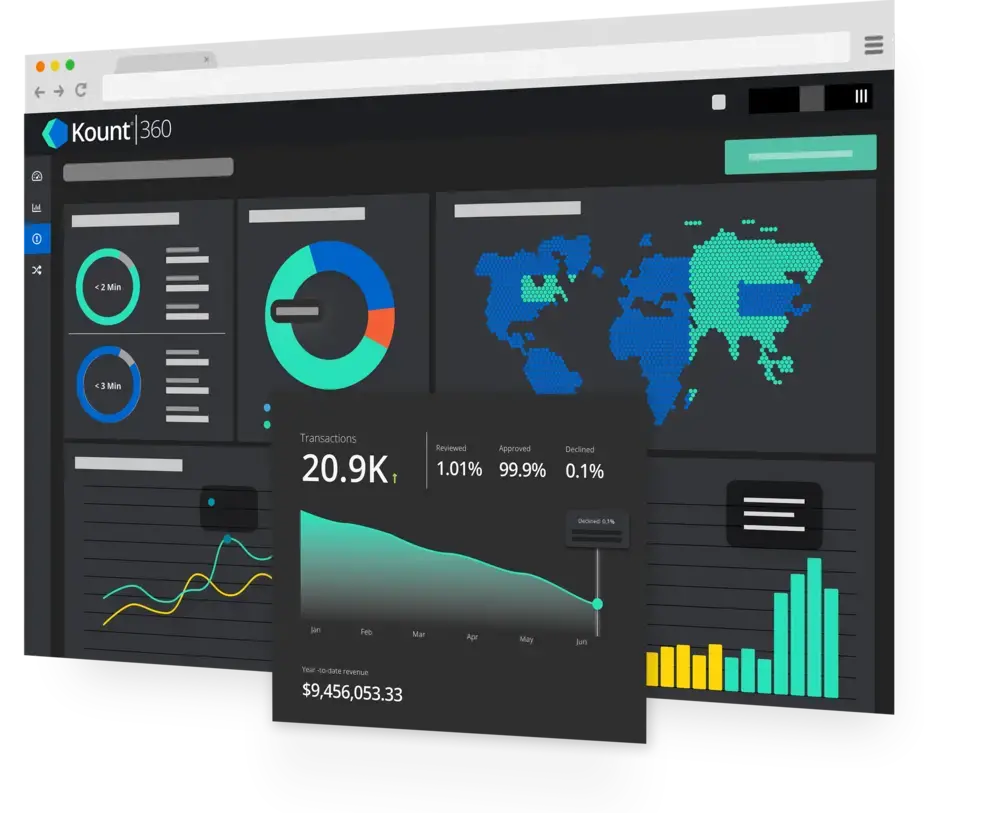NEWS AND PRESS
We're making headlines
Kount's technology and the expert team behind it are making a significant impact on the industry. Our accomplishments have gained widespread recognition and accolades. Read what others have to say about us.

Dilip Singh discusses the value of using data science to better understand your consumers. Learn how the data you're collecting can lead to consumer…
Equifax has joined forces with VTEX to enable customers on the VTEX platform to seamlessly integrate with the Kount Payment Fraud solution.
In this PYMNTS.com interview, Robert Painter talks Visa's CE 3.0 key takeaways and the best strategies for merchants to protect against post-transaction…
In this Future of Identity podcast episode, Adam talks about his journey in the identity space and tactical factors needed for reusable identity adoption.
In this PYMNTS.com highlight, Brady Harrison discusses the use of AI and ML in Payments and how incorporating more AI will help build customer lifetime value.
In this interview with the Payments Consulting Network, Brad Wiskirchen and Adam Gunther introduce the Digital Solutions team at Equifax.
Adam Gunther from Kount sits down with PYMNTS.com to discuss the evolving chargeback landscape and Kount's new pre-dispute management solution.
In this Insights highlight on Retail Today, Jared Kernodle talks about why ecommerce platforms have become a large target for fraud and how retailers can…
In this PYMNTS.com highlight, Brad Wiskirchen, SVP and GM of Kount, gives his insights into what businesses should focus on for 2023.
Visa updated its requirements around reporting fraud, looking to reduce friendly fraud chargebacks and helping merchants retain more of their revenue.
Quadrant Knowledge Solutions announced that it named Kount, an Equifax Company, the 2022 technology leader in the SPARK Matrix for eCommerce Fraud Prevention.
Cloud-based Kount 360 Platform Offers Businesses a Full Suite of Identity, Payment and Compliance Solutions on a Single User Interface
Combining data, technology and strategy is the best way to combat fraud and support revenue, Wendi Lete, chief customer experience officer at Kount, writes in…
When companies use identity data effectively, they deliver a personalized, frictionless journey - offering products to the right customers at the right time.
Brad Wiskirchen, SVP and GM of Kount, talks with PYMNTS about the best line of defense against the ever evolving problem of fraud.
Brady Harrison from Kount talks with PYMNTS on why online businesses need to rethink the way they use Big Tech data to drive sales.
Mark Standfield, president of Midigator, talks with PYMNTS about what Visa's CE 3.0 means for merchants.
Payments platform NMI is collaborating with Kount, an Equifax Company, to provide enhanced fraud protection.
Featured in the Future of Payments Special Edition, Jared Kernodle of Kount and Adam Sharpe of Cardstream discuss how technology is tackling payments fraud.
TESTIMONIALS
What our clients are saying

EXPLORE KOUNT
Want to learn more?
Schedule a conversation with our team to find out how to grow your business with more confidence.


